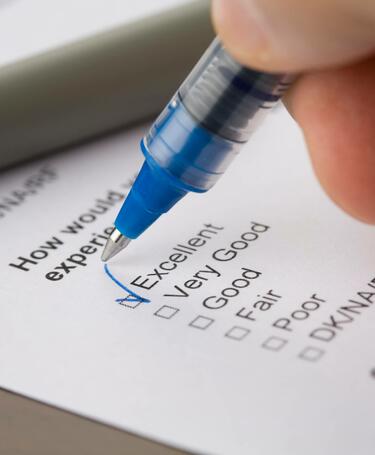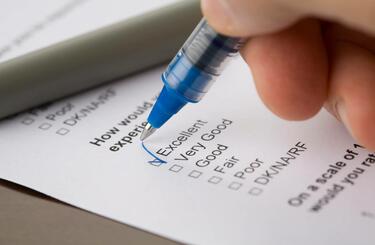
Influence of personal behaviour in auditing
Progress indicator

How can the personal behaviour and beliefs of an auditor influence the outcome of an audit? Chikaodili Hemeson CQP MCQI takes a closer look.
Our beliefs, values, environment and experiences influence how we approach and react to others – should any of these be positive or negative, that is what we would bring to the table.
The world of auditing is no different. As auditors, we are basically placed in a role similar to that of a judge, to determine the future of an organisation to retain or acquire certification for personal or regulatory use. Particularly when we are left to determine the impact of standards on people, environment, equipment, and processes, as auditors, we find ourselves in situations where we are often feared or exalted as demi-gods, with the power to fail or pass an auditee in the palm of our hands.
Without the incorporation and exhibition of positive personal behaviour, the world of auditing would be marred with unquestionable doubt of its efficacy and efficiency.
Personal vs. professional beliefs
Usually, we try to separate our personal beliefs from our professional conduct because we think they have no place in the workplace. However, when we are pushed out of our comfort zone, or placed in extremely difficult situations, our personal beliefs tend to override our professional conduct.
When these situations arise, we are prone to question ourselves on how others may perceive us. Would they condemn us, praise us, or encourage us?
"...How we conduct ourselves as auditors will always determine the degree of our competence in delivering an audit free from bias and impartiality without risk to our professionalism and reputation."
To prevent this conflict, organisations may choose to have a code of ethics or conduct to guide its people on the type of behaviour that is expected of them. These codes come with different titles, such as fundamental human rights, professional code of ethics, code of conduct, code of practice, etc. However, they comprise the same thing and are for the same purpose – to manage the behaviour of a specified group of people. The need for codes to govern human behaviour can be further gleaned from constitutions, legislation and policies.
Hence, the expectation would be that every organisation, large or small, whatever the industry or field, will have some form of code to guide its employees or members.
Standards and code of practice
For quality professionals, there is no single code of practice or ethics that can be relied upon or exemplified in a single document. With the exception of independent organisations such as the CQI and ASQ, who hold their members to a certain standard, ISO 9001 lacks the ability to achieve this objective. Besides, it is no secret that licensing and certification are inadequate to assure quality.
As a result, these organisations are left with no choice but to develop code of conducts to manage the behaviour and repute of their members and employees. This, in turn, promotes professional accountability and personal responsibility from its members.
Auditing and personal behaviour
It is vital that auditors demonstrate the behaviour of being ethical, open-minded, diplomatic, observant, perceptive, versatile, tenacious, self-reliant and decisive, as well as acting with fortitude, being open to improvement, culturally sensitive, and collaborative with others throughout an audit process. This includes follow-ups and recertification stages.
For instance, it would not be presumptuous to assume that an auditor who has been kept waiting for over an hour to conduct an on-site audit after the initial stage, with the audit time and date long agreed upon, would, in this circumstance, not negate the expectations of ISO 19011:2018 Guidelines for auditing management systems as to his personal behaviour in the performance of his duties.
Likewise, if an auditor who performs an audit by the single act of checking off a list filled with both relevant and irrelevant documents for verification is questioned on the efficacy of the process, would he still remain professional in the face of opposition or conflict? To uphold the integrity of an audit, the behaviour exhibited by auditors would be a good approach to determining the competence and integrity of the process.
Enforcement and personal behaviour
Who, then, do we report to when an auditor contravenes these expectations? With no solution to this problem, it would seem that ISO 19011 did not take into consideration the possibility that its guidelines may be flouted. Or, perhaps as is common, the expectation is that professional and certification organisations oversee the implementation and management of the conduct of its auditors’ members, should this hiccup occur.
If we are to take our role as auditors seriously, and be seen as doing such, the need for complaints and disciplinary boards or committees should not be far-fetched.
Conclusion
As humans led naturally by our sensibilities and conceptions, we are bound to react based on how we perceive our present situation, or are feeling at that moment in time.
Of course, during an audit is no exception. Therefore, how we conduct ourselves as auditors will always determine the degree of our competence in delivering an audit free from bias and impartiality without risk to our professionalism and reputation. We have to be the example that we want to see.
Determining legal requirements in auditing
Chikaodili Juilet Hemeson, Managing Director and Chief Executive Officer of the safety services consultancy Henzof Nigeria, highlights the need for determining legal requirements when conducting an audit.
Quality World

Get the latest news, interviews and features on quality in our industry leading magazine.


